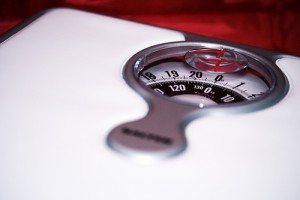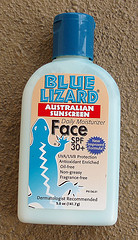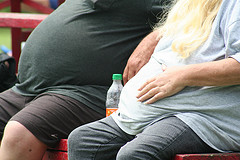 Experts warned Monday that the athletes’ regular practice of intentional dehydration and strict limitation of daily caloric intake is dangerous; this is especially true for wrestlers, gymnasts, and boxers who often feel the pressure to maintain a certain weight to boost their performance.
Experts warned Monday that the athletes’ regular practice of intentional dehydration and strict limitation of daily caloric intake is dangerous; this is especially true for wrestlers, gymnasts, and boxers who often feel the pressure to maintain a certain weight to boost their performance.
The National Athletic Trainers’ Association has recently issued a set of guidelines for safe weight loss among athletes. The guidelines include using body composition assessment which is a way to measure gat against lean body mass, losing a maximum of 1.5 percent of body weight per week, eating a balanced diet, and shedding pounds with a nutritionist’s supervision.
Paula Sammarone Turcoy, chairperson of the athletic training department of Duquesne University of Pittsburgh and lead author of the guidelines, said that many athletes are pressured by the society to not only perform well during a competition, but to also look good while doing it. She added that there is an unspoken rule that some athletes have to maintain a certain body type in order to “succeed” in their field.
Turcoy, however, said that weight loss and getting to an ideal body weight is actually not a problem; the issue arises when these athletes go to extremes just to achieve or maintain a certain weight. She added that when weight loss is not done properly, it can actually lead to poor performance and eveb health problems.
The guidelines were published on the Journal of Athletic Training June issue and were presented last Monday at the National Athletic Trainers’ Association’s annual meeting.

 Experts warned that drastic methods to lose weight such as strict calorie restrictions and intentional dehydration may cause harm to an athlete’s health. Thus, they have issued new safe weight loss guidelines specifically designed for sports-minded person.
Experts warned that drastic methods to lose weight such as strict calorie restrictions and intentional dehydration may cause harm to an athlete’s health. Thus, they have issued new safe weight loss guidelines specifically designed for sports-minded person. An initial result of a recent study showed that deaths from non-communicable diseases account for almost two-thirds of the total deaths in the world. It is rapidly increasing to a point where it has become a financial burden to the global economy.
An initial result of a recent study showed that deaths from non-communicable diseases account for almost two-thirds of the total deaths in the world. It is rapidly increasing to a point where it has become a financial burden to the global economy. A study confirmed on Monday that there are a lot of doctors who are testing the wrong women or who are using the wrong tests for a virus that can cause cervical cancer.
A study confirmed on Monday that there are a lot of doctors who are testing the wrong women or who are using the wrong tests for a virus that can cause cervical cancer. A recent study shows that only one out of four high school students drink soda every day. The study suggests that this ratio shows fewer teenagers are drinking that much sugary drink anymore. Also, the researchers discovered that many high school students actually drink milk, water, and fruit juices very often.
A recent study shows that only one out of four high school students drink soda every day. The study suggests that this ratio shows fewer teenagers are drinking that much sugary drink anymore. Also, the researchers discovered that many high school students actually drink milk, water, and fruit juices very often. The National Institute of Health announced that the strong-smelling chemical formaldehyde may cause cancer. Styrene, the second widely used chemical in the manufacture of food containers and fibreglass, is also listed under carcinogenic agents.
The National Institute of Health announced that the strong-smelling chemical formaldehyde may cause cancer. Styrene, the second widely used chemical in the manufacture of food containers and fibreglass, is also listed under carcinogenic agents. A recent study concluded that inefficient bowel preparation before a colonoscopy procedure may result in high false negative rates for adenomas or precancerous polyps and a need for repeat tests.
A recent study concluded that inefficient bowel preparation before a colonoscopy procedure may result in high false negative rates for adenomas or precancerous polyps and a need for repeat tests. The United States Food and Drug Administration announced on Tuesday that they will require new sunscreen labelling in order to identify the products that are best for decreasing the risk of skin cancer.
The United States Food and Drug Administration announced on Tuesday that they will require new sunscreen labelling in order to identify the products that are best for decreasing the risk of skin cancer. A recent study suggests that weight loss surgery does not necessarily decrease the morbidity rate among morbidly obese middle-aged adults.
A recent study suggests that weight loss surgery does not necessarily decrease the morbidity rate among morbidly obese middle-aged adults. A woman who was brutally attacked by a chimpanzee back in 2009 has undergone a full face transplant in Boston, the hospital where the procedure was made announced on Friday.
A woman who was brutally attacked by a chimpanzee back in 2009 has undergone a full face transplant in Boston, the hospital where the procedure was made announced on Friday.